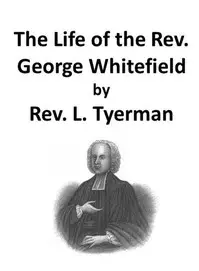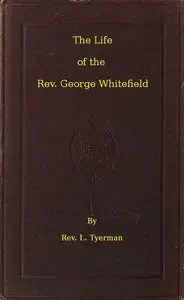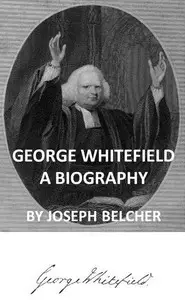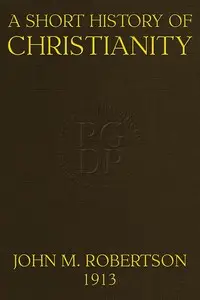"The Works of the Reverend George Whitefield, Vol. 2 (of 6)" by George Whitefield is a compilation of religious pieces constructed in the 1700s, encompassing a variety of the famed preacher’s sermons, essays, and private correspondence, highlighting his strong dedication to spreading the Christian message in England, Scotland, Ireland, and America during his powerful work. The main idea of this compilation showcases Whitefield’s love for sharing the gospel, his ideas regarding belief, and his experiences as a reverend. The start of the book includes a number of personal letters to friends and coworkers expressing his thoughts and feelings about his religious duties, as well as his appreciation for their letters, the progress of his preaching, and his insights into the passion and emotion of his audience. He heartens his ministry peers, encouraging them to continue their devotion and sharing updates about their religious jobs, focusing on the challenges and successes of spreading their core messages, creating an affable and warm sentiment that uplifts and inspires.

The works of the Reverend George Whitefield, Vol. 2 (of 6)
By George Whitefield
Journey through the powerful words of an 18th-century preacher as he shares his unwavering faith through heartfelt sermons and personal letters, igniting a spiritual fire across continents.
Genres
Released
2023-07-07
Formats
epub (images)
epub3 (images)
epub
mobi (images)
txt
Free Download
Summary
About the AuthorGeorge Whitefield, also known as George Whitfield, was an English Anglican minister and preacher who was one of the founders of Methodism and the evangelical movement. Born in Gloucester, he matriculated at Pembroke College, Oxford in 1732. There, he joined the "Holy Club" and was introduced to John and Charles Wesley, with whom he would work closely in his later ministry. Unlike the Wesleys, he embraced Calvinism.
George Whitefield, also known as George Whitfield, was an English Anglican minister and preacher who was one of the founders of Methodism and the evangelical movement. Born in Gloucester, he matriculated at Pembroke College, Oxford in 1732. There, he joined the "Holy Club" and was introduced to John and Charles Wesley, with whom he would work closely in his later ministry. Unlike the Wesleys, he embraced Calvinism.
Total Reviews
10.0k
Total reviews from Goodreads may change














